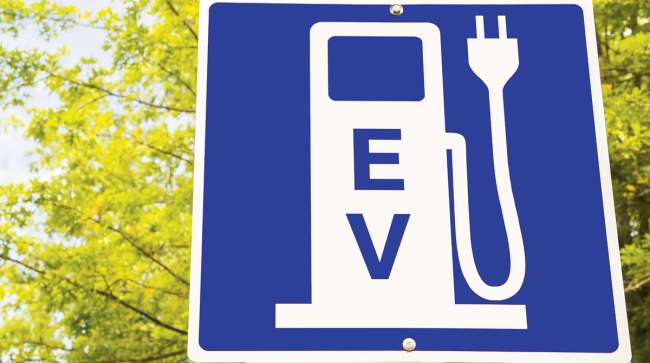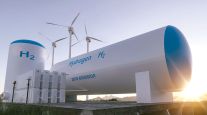Staff Reporter
DOE Announces $59 Million for Vehicle Technology Research

[Stay on top of transportation news: Get TTNews in your inbox.]
The U.S. Department of Energy announced it is devoting $59 million to 43 projects that will explore advanced vehicle technology research.
The projects, funded through the agency’s Office of Energy Efficiency and Renewable Energy, address subjects ranging from electric driving systems and batteries to alternative fuels and powertrains.
ANNOUNCED TODAY: New vehicle technology R&D projects to address priorities in advanced batteries and electric drive systems, co-optimized engine and fuel technologies, materials for efficient powertrains, new mobility systems, and more. https://t.co/ib5ipeZ8VW
— Energy Department (@ENERGY) August 16, 2019
One of the largest shares, for $7 million, was awarded to General Motors Co. for a project on low-mass, high-efficiency engines for medium-duty truck applications. Ford Motor Co. received $7.5 million to study high-efficiency boosted engine development.
The Metropolitan Energy Center received $780,000 for a project on electrifying terminal trucks in unincentivized markets. Based in Kansas City, Mo., the Metropolitan Energy Center is a nonprofit group specializing in energy efficiency, economic development and environmental sustainability. Kansas City is an important freight hub, containing four intermodal hubs, a massive rail center and an inland waterway.
Similarly, Clean Fuels Ohio will use $779,000 for heavy-duty electric vehicle demonstrations to help create freight and mobility solutions. Clean Fuels Ohio, based in Columbus, partners with organizations and government agencies to promote advanced fuels and vehicle technology.
CALSTART Inc., a nonprofit group based in Pasadena, Calif., has been allotted $2.1 million for a data collection project on medium- and heavy-duty electric vehicle deployment. Founded in 1992, CALSTART focuses on clean transportation in the truck, car, bus and fuel industries. “Vehicles drive our national economy,” Under Secretary of Energy Mark Menezes said in a statement. “At DOE, we support a broad portfolio of technologies, generating the knowledge needed for industry to further develop and commercialize affordable, secure and reliable transportation systems.”
RELATED: Nikola Receives $1.7 Million Research Grant From DOE
Some of the recognized projects involve research on energy efficient mobility systems. For example, DOE set aside $3.2 million for the Southwest Research Institute in San Antonio to study the energy-efficient maneuvering of connected and autonomous vehicles at intersections. The Regents of the University of California at Berkeley received $3.4 million to use connected and autonomous vehicles to study congestion impact reduction.
E4 Carolinas, a trade association representing North Carolina and South Carolina-based energy companies and organizations, was allotted $826,000 to work on the alternative fuel infrastructure plan for storm resilience planning. The Florida Department of Agriculture and Consumer Services’ Office of Energy received $700,000 to develop a statewide alternative fuel resiliency plan.
According to DOE, these projects are meant to support the agency’s goals of strengthening national security, fostering economic growth and increasing transportation that is affordable for Americans.
Transportation is the most expensive spending category for Americans after housing, according to the press release. The average U.S. household spends nearly one-fifth of its total family expenditures on transportation. Many of the projects, which pertain to solid state batteries and electric vehicles, are meant to improve fuel economy.
The press release notes that vehicles transport 11 billion tons of freight annually, which is more than $35 billion worth of goods per day. Vehicles also move people more than 3 trillion vehicle miles each year.


